“Yoooo! You’re in that skateboard movie,” is a reaction the stars of Skate Kitchen are receiving a lot at the moment. A narrative film based around their real skate collective of the same name, over the last few months the cast — all of whom are real friends — have been propelled from local fame to international skate stars. “Like one guy starts just talking about the film on the train,” Nina says, “and then a different guy that didn’t know him was like ‘Yo, I’ve seen that movie too bro!’, I was like, woah this is weird, bro.”
Today they’re sat in a back room of a cinema in central London. It wouldn’t take long to deduce that the four of them present — Dede, Kabrina, Nina and Ajani — aren’t media-trained actors. Staring at their phones, laid back on sofas, there’s an idle, insouciance about them that’s as present IRL as it is on screen. The film’s director Crystal Moselle, sat on a chair to their right, offers an occasional “Girls!” to draw back their attention, but interviews, it seems, aren’t of much interest.
“I haven’t read any of our press. I’m like if it’s bad it’ll be bad and if it’s good someone will tell me it’s good,” Ajani says. “What am I going to do if they write something bad about me? Am I really gonna have someone email them to change it? Are they gonna look at that email? I have my own platforms where I can express myself and if they want to know more about me they can find it on source.” The source is, of course, Instagram, something the four of them swipe vicariously throughout, arms outstretched every so often to show one another the skate clips they’ve just seen, just like in the film.
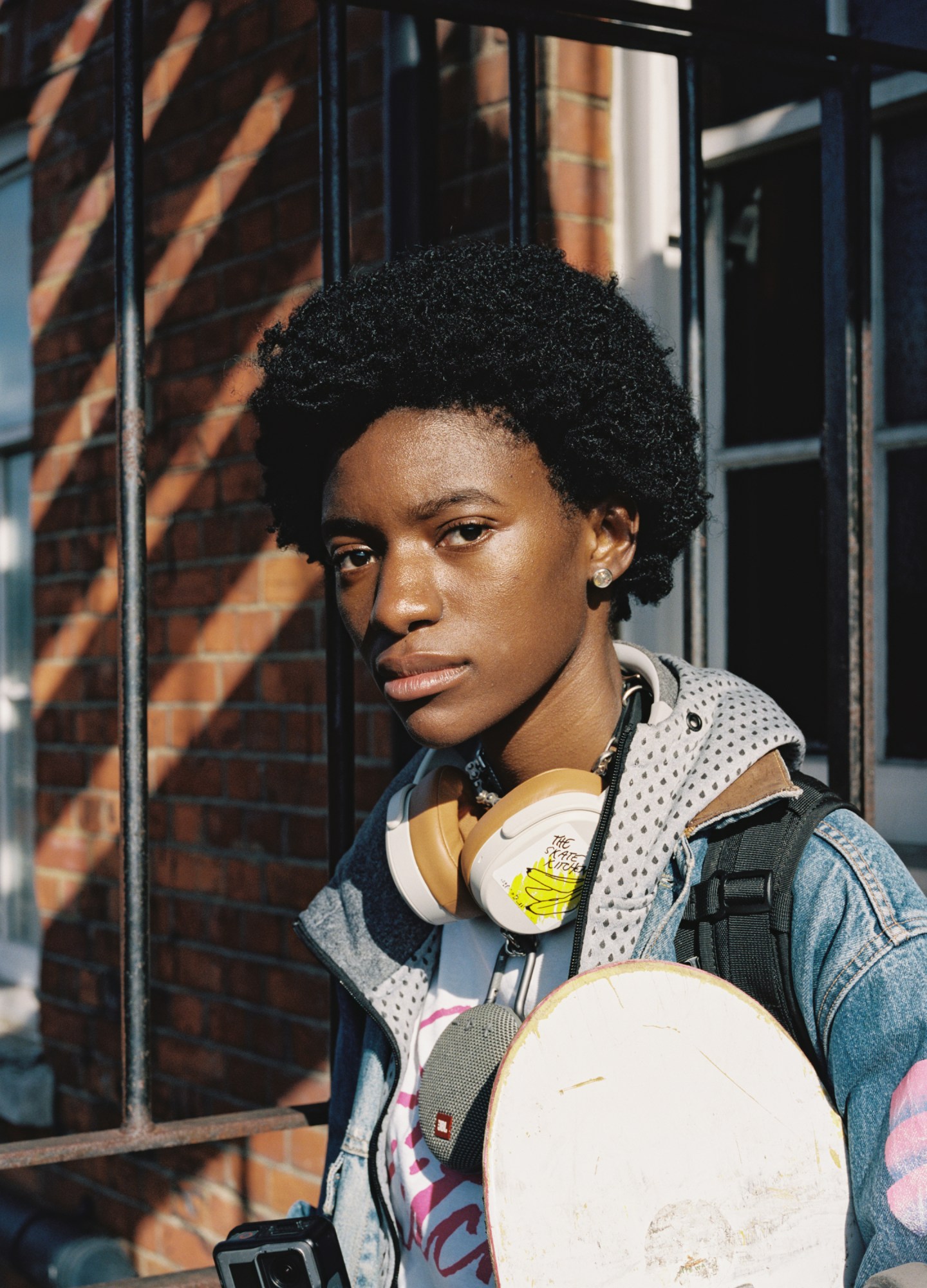
It’s moments like this that make the experience of interviewing real people who play versions of themselves a little bizarre. It’s as if you’re interviewing an actor in character. Nina, for example, is Kurt. There’s almost no distinction between her and her character in their attitude, humour and style — exuding all the cool, stoner apathy and equanimity one would characterise a typical New York skater with. In the film, we first meet Kurt shouting to Janay, “Janay! That girl just fingered me in the bushes, bro!” shortly after outsider Camille — played by Rachelle from Long Island, who’s back in New York right now — arrives at the skatepark for the first time.
Dede is “a lot funnier and a lot sillier than her character Janay,” says Crystal, while Kabrina often gets recognised on the streets for being ‘the girl that films everything’ — spending as much time documenting her friends with a camera in real life as she does in the film. “They’re like, I recognise your camera, you were in that movie Skate Kitchen,” Kabrina says.
Before this, director Crystal was best known for The Wolfpack, a Sundance Grand Jury Prize-winning documentary that chronicled the lives of seven homeschooled siblings raised in an apartment on the Lower East Side of Manhattan, with limited access to the outside world. In her film, Crystal documented the siblings growing apostasy, as they began defying their religious parents’ strict orders to never go outside. She got to know the siblings after spotting them walking down First Avenue one day. In a similar fashion, Crystal first came to the Skate Kitchen collective after spotting Nina and Rachelle on the subway.
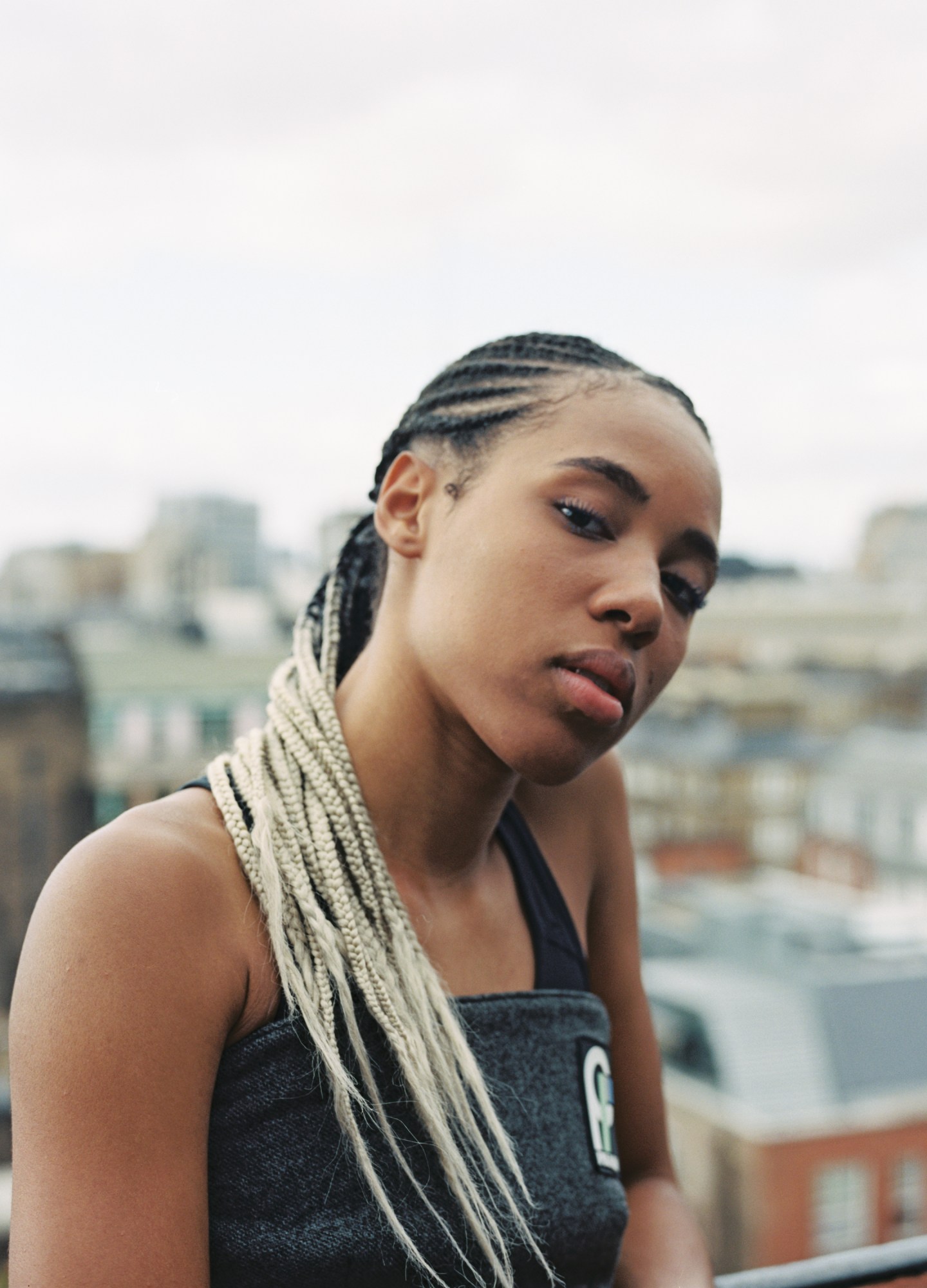
“Crystal came up to us and asked us if we wanted to collaborate or something, like a short film,” Nina says. “We were like ‘yeah, that’s cool’ so then we gave her our emails, and we met up, and she proposed a short film for this brand called Miu Miu. She was like ‘I wanna do a short film but are there more of you?’ and I was like ‘Yeah, I know more girls that skate’ so all of us came together and hung out with Crystal. We made this short film and then that shit popped off and we made a full-length movie.”
Shit more than popped off, as Ajani is quick to add. “It got really good feedback,” she says about the film’s premiere at this year’s Sundance. “People were really excited about the idea of having an all-girl skate crew that’s really diverse, and also fashionable.”
For Crystal, it made most sense to write a script around their lives and build on the narrative style of the Miu Miu short film, than it did to be simply an observer of their daily lives, like in The Wolfpack. But everything she wrote was grounded in truth. “I’d just hang out and listen to them and write down their conversations,” she says. “Their input was just as important. They had ideas. I’d ask them what they did that week and they’d tell me stories or I’d already be with them when these things were happening.”
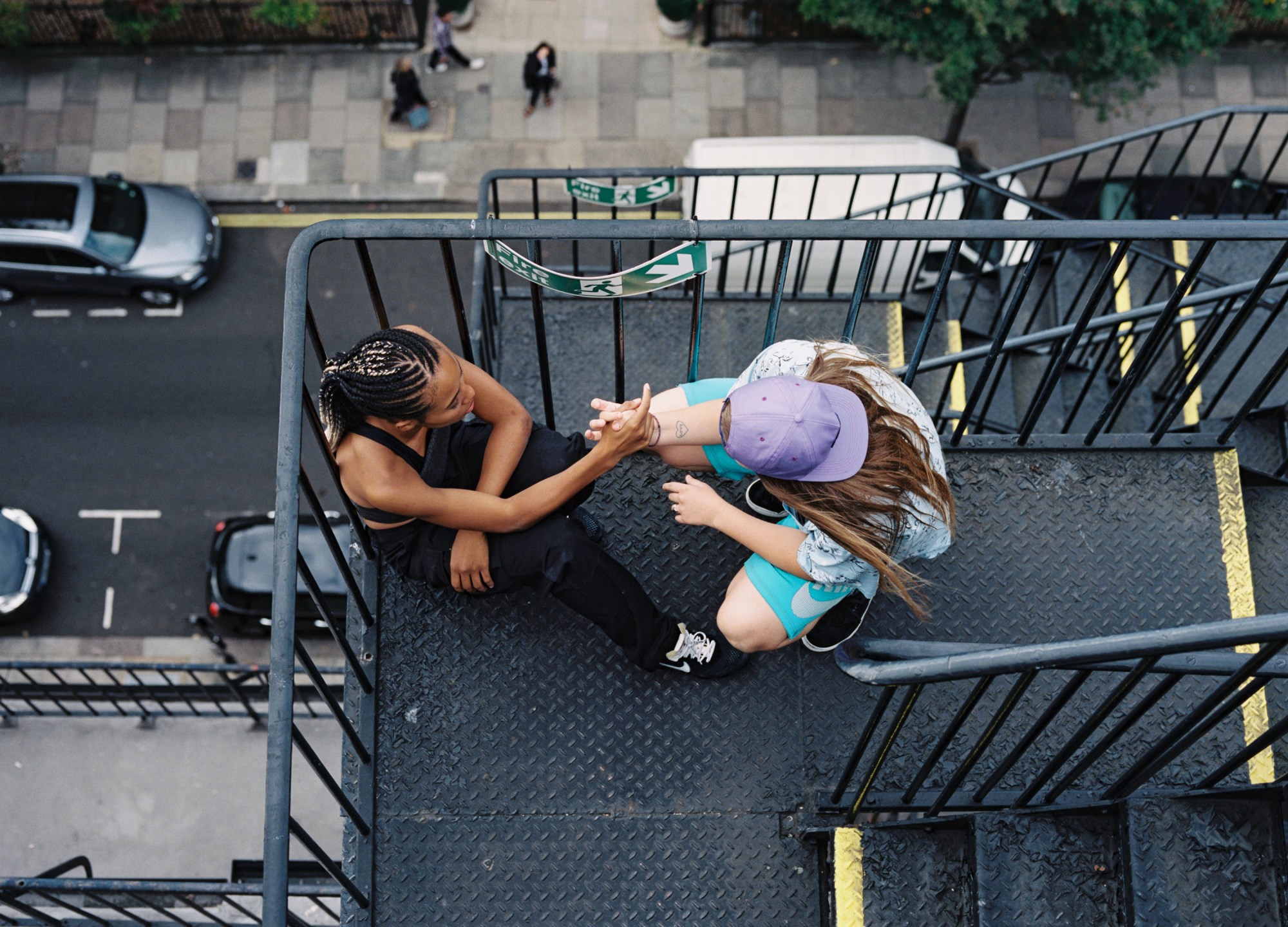
“A portion of it,” feels accurate to watch back, says Dede. “Just the dynamics of the skate park and our friendships are pretty accurately depicted. Because it’s with the people we real hang out with in real life, it feels authentic to that time period even if it wasn’t exactly what happened.”
Whether or not it’s truly their reality, what Skate Kitchen accomplishes, where so many films about skateboarding fail, is a complete authenticity to its location, era and generation. It’s not just about skateboarding, but about New York, Instagram, drugs, female friendship, sexuality, familial relationships and youth culture.
The party scene is a particularly good example of this; Rachelle’s baptism of fire into their nefarious nightlife. The night is raucous and wild, but it doesn’t labour or exaggerate what a bunch of 19-year-olds might get up to at a party, it only heightens it. Such is the power when you enlist a load of real friends to stage a party. “We knew all the people there, or we know people who know people,” says Nina. “It was a very close circle of city kids. We set it up, but then, it turned into a party because everybody just came. So it was a real party. But we don’t have a ramp like that. The ramp was put in.” It’s nothing new, either, as Crystal is quick to point out. “When I came to New York in 98, kids were doing the same shit… these crazy parties in Brooklyn.”
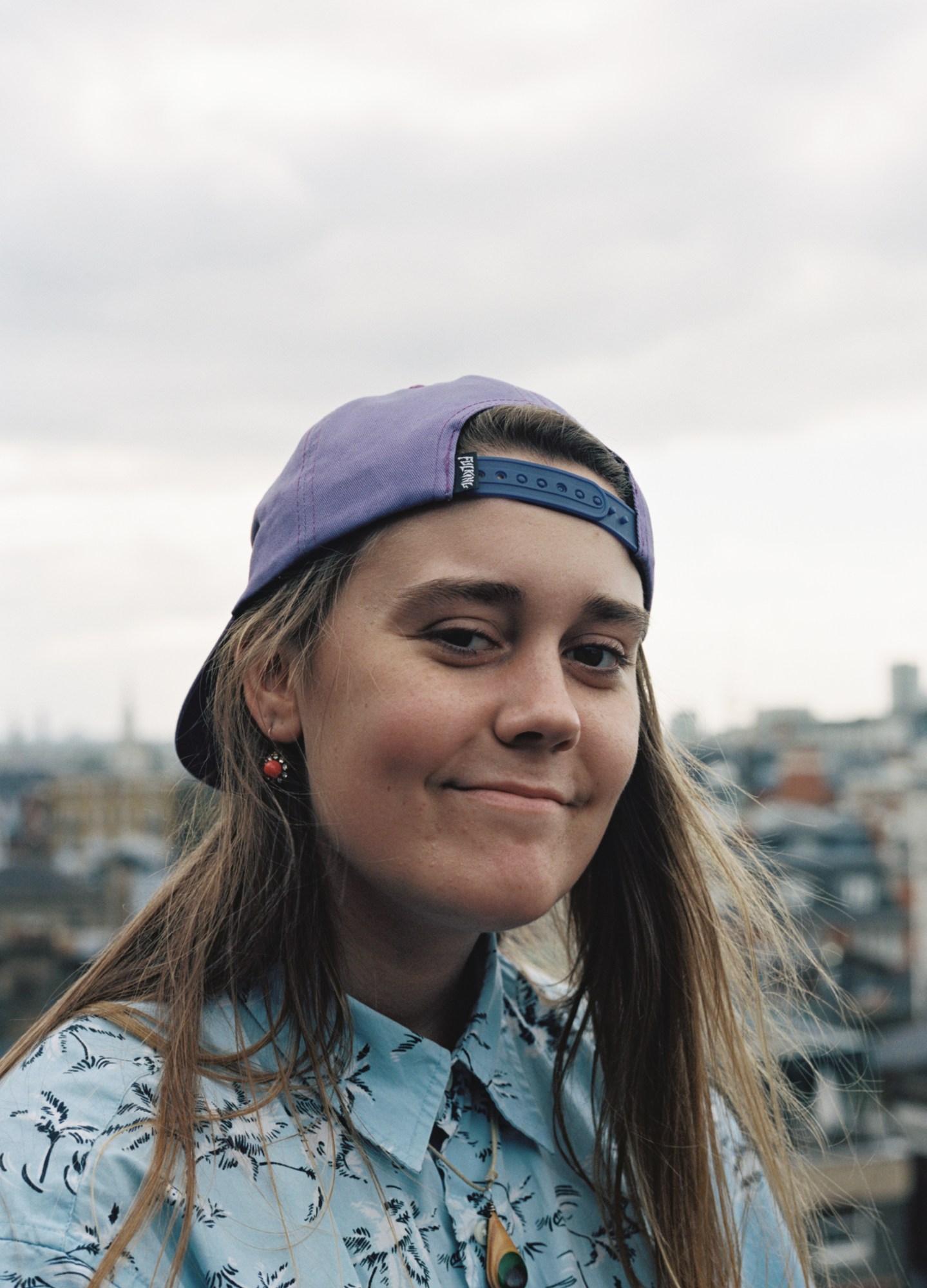
Despite the recognition they’re receiving out on the streets, nothing’s really changed when they spend time at the skatepark. “If anything people make fun now — oh, you Hollywood, you Hollywood — and I’m like, no we’re not,” says Dede. “No one like, ‘fans out’ or anything like that because they knew us before we did the movie.”
Though modern and not dependent on nostalgic, 90s, Larry Clark-esque tropes in order to bring the story to life, in 2018 there remains a bias against female skaters that’s examined in the film. The divisions and fractures between them and the all-male crews they share skate spots with inform a lot of the film’s loose narrative. This is where Jaden Smith, the main cast’s sole professional actor comes in.
In the real world, change is happening, undoubtedly in part thanks to their trailblazing, but there’s still work to be done. “It’s become more accepting,” Dede says. “If you go in there and make yourself space and are like ‘I’m here, whatever,’ they’re gonna respect it. It all depends on the attitude you have when you enter into that scene. You have to have confidence in New York especially. Once you’re accepted it’s very friendly and people watch out for you.”
Ajani adds, “When I first started skating, I would go to the skate park and see one other girl and that girl would be one of us. Now, there’s a bunch of other girls and boys are more used to seeing the girls.”
Whether you’re a girl, a boy, or non-binary, “If you go in there and you’re scared then you’re gonna be pushed out,” Dede finishes with. Well, as they say, if you can’t stand the heat, get out of the Skate Kitchen.
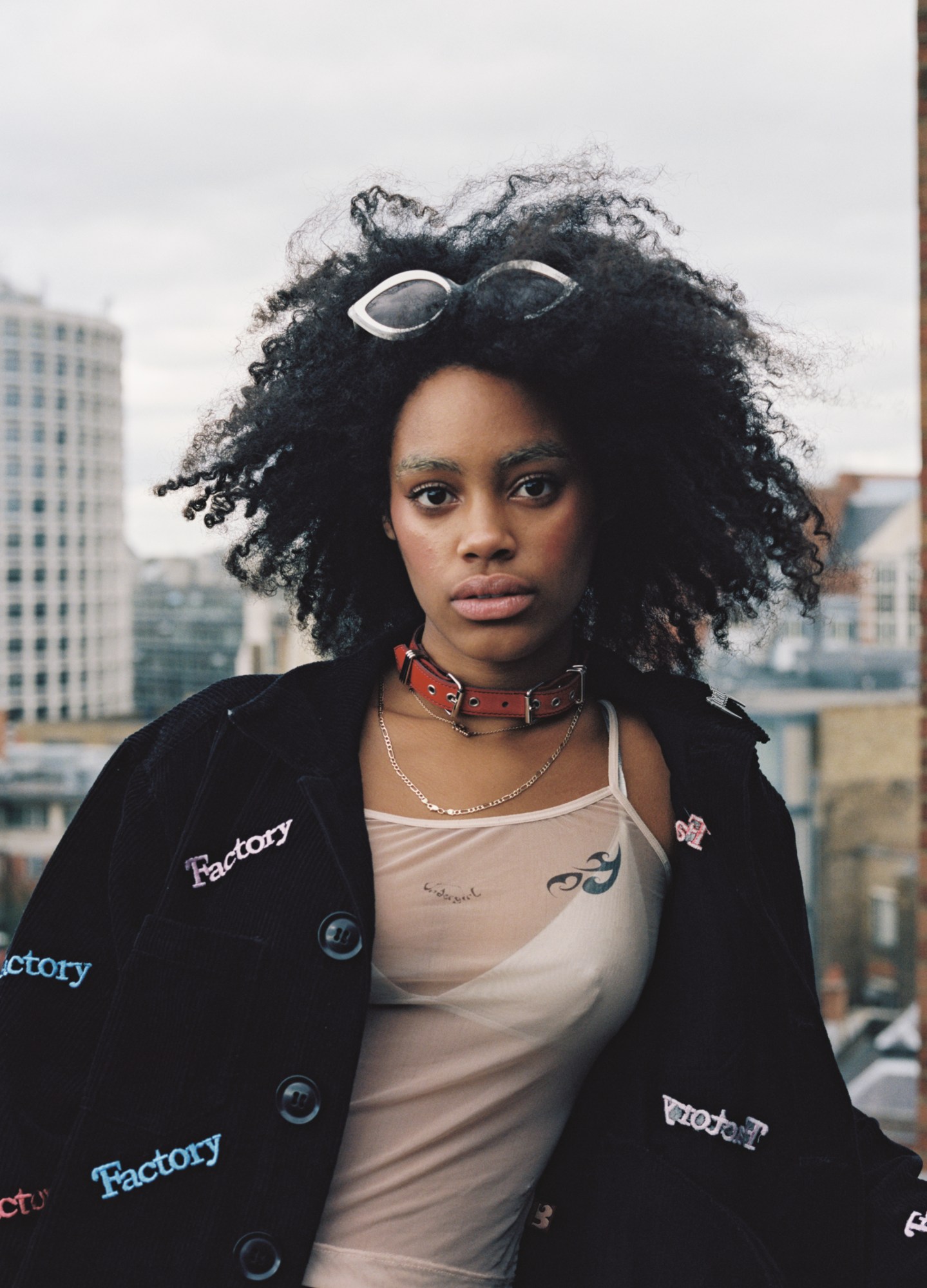
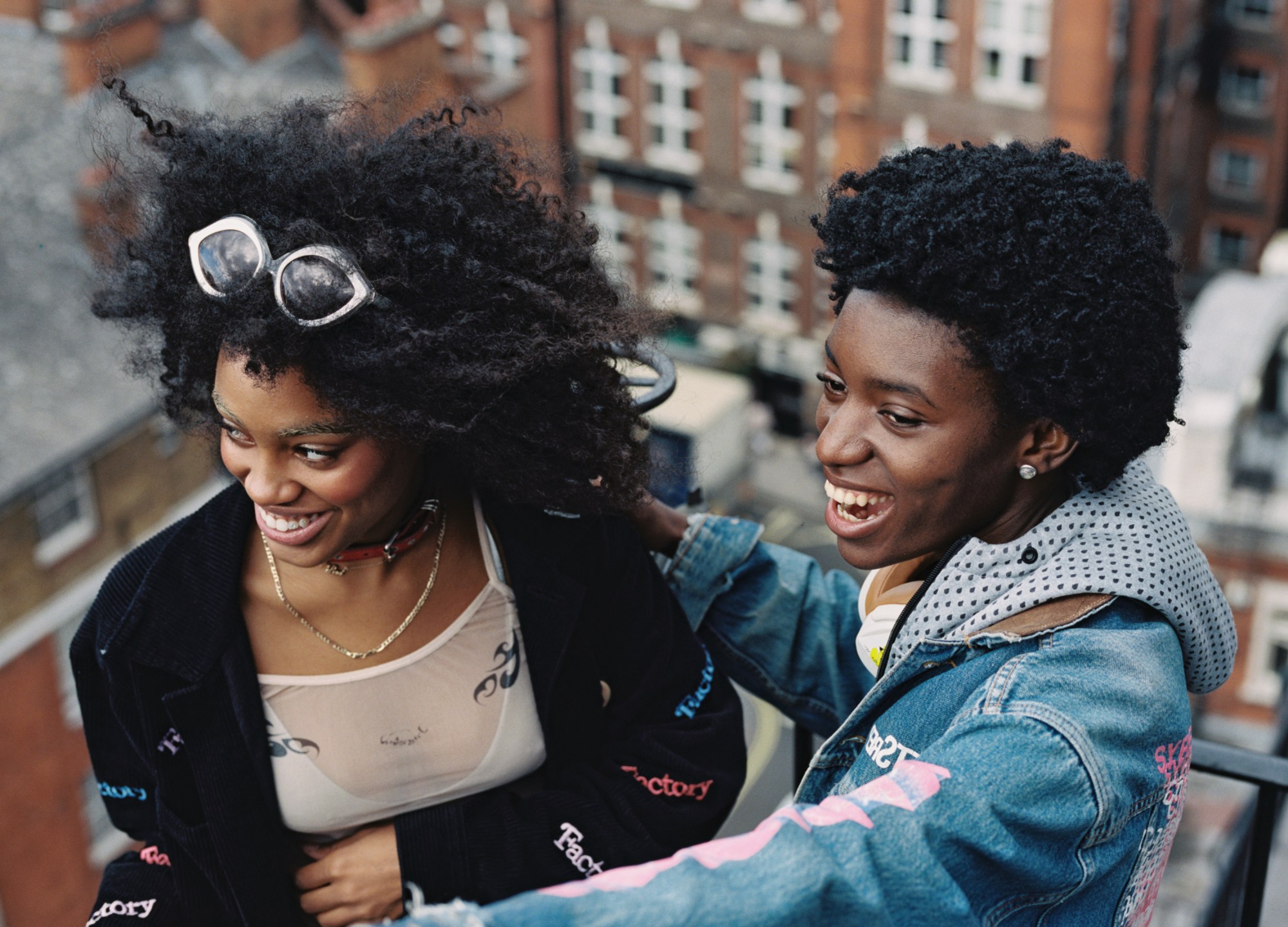
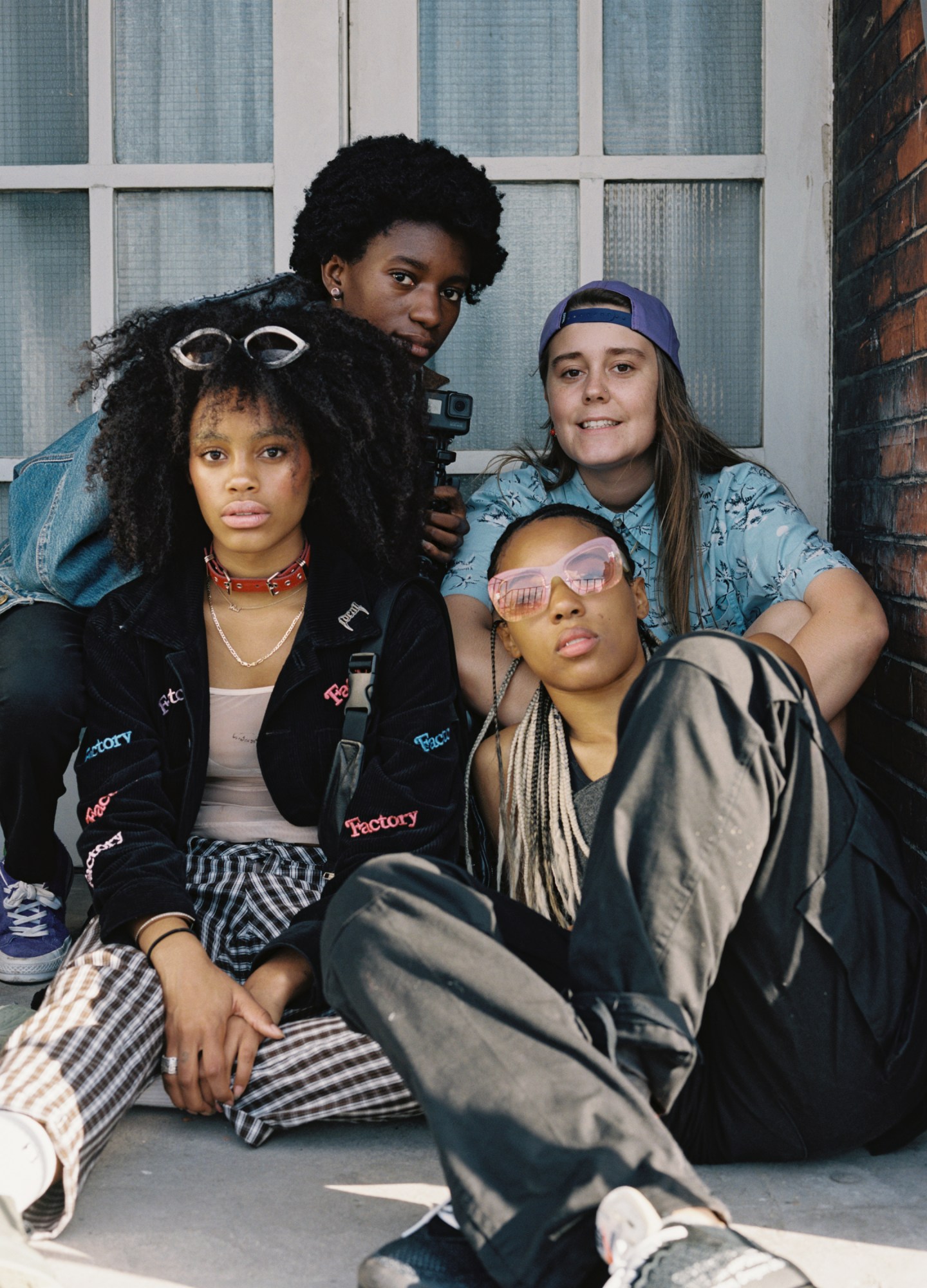
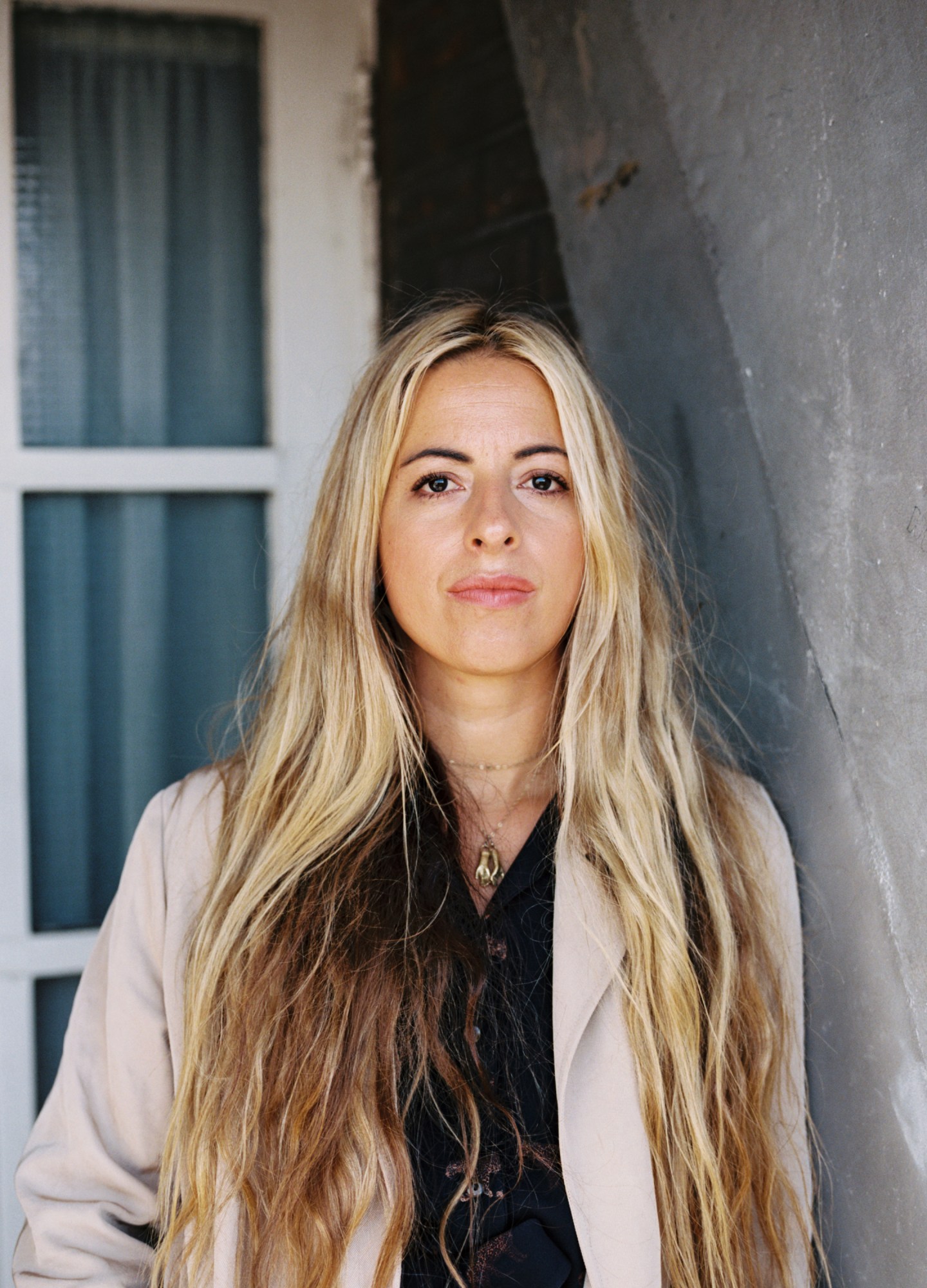
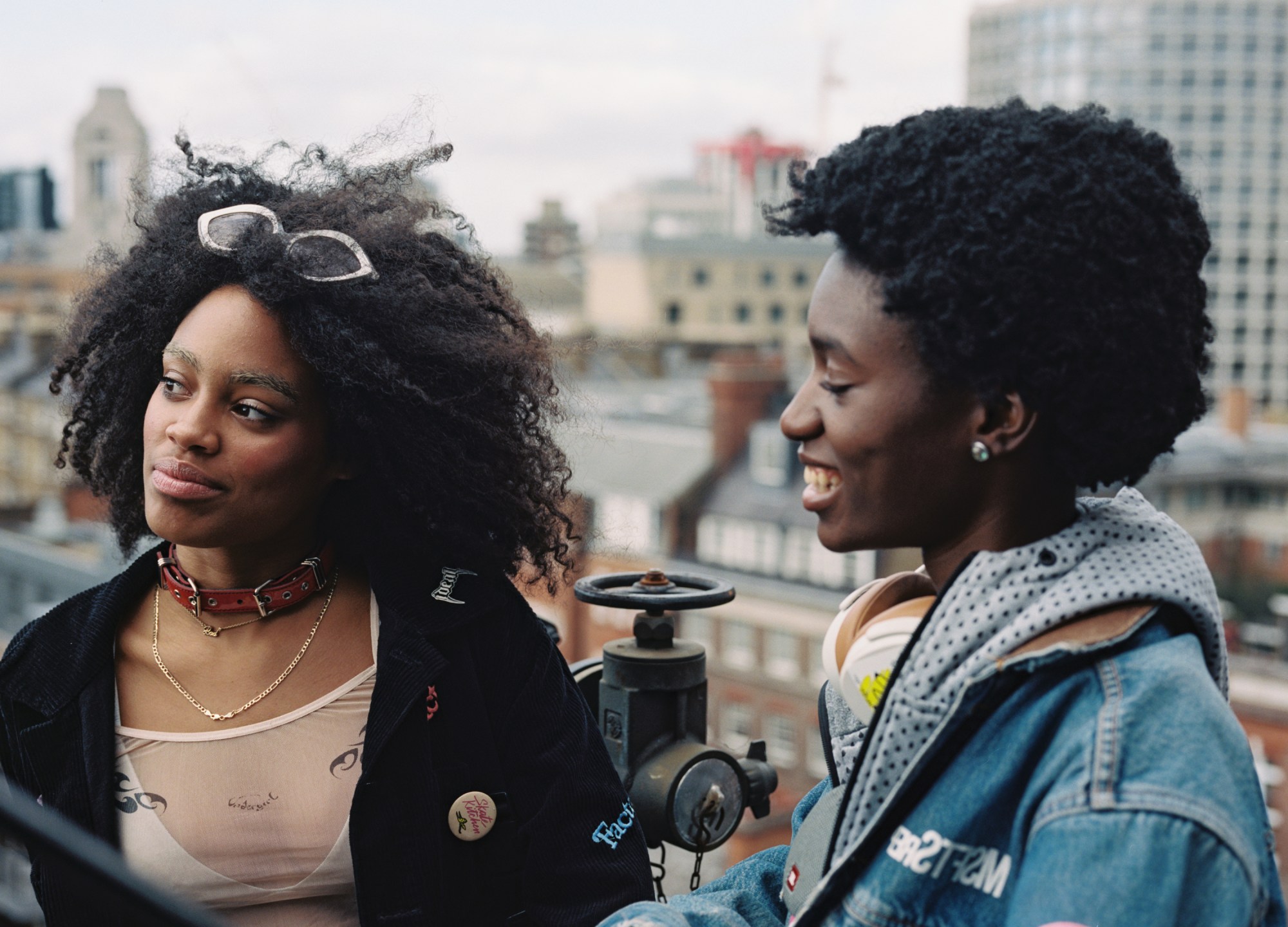
‘Skate Kitchen’ will be released in UK cinemas on 28 September.
Credits
Photography Tom Emmerson

